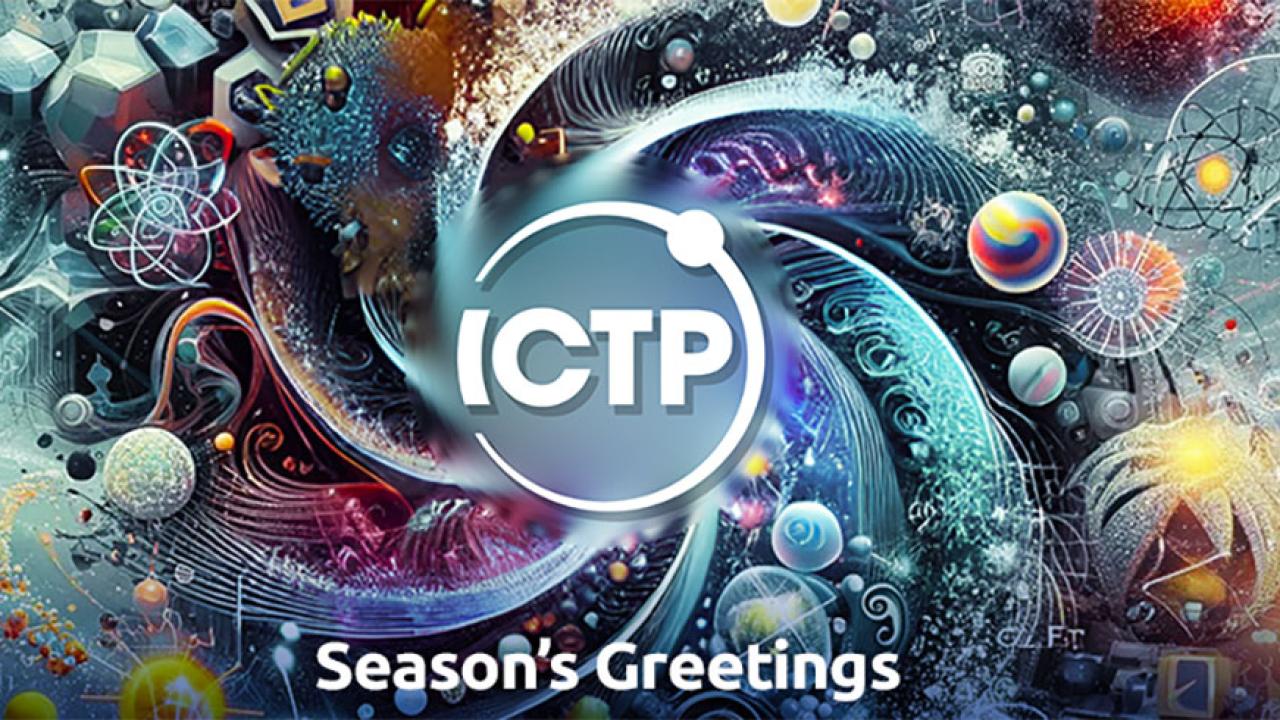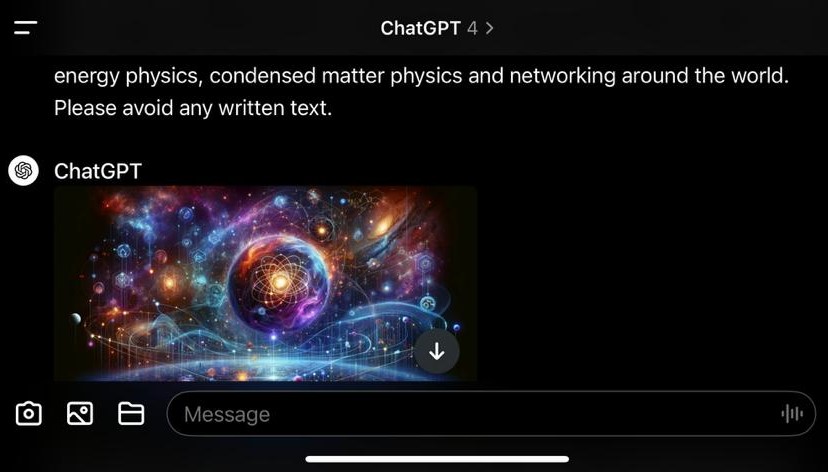
AI is fast evolving, and it’s everywhere. Computers that filled whole rooms in the 1940s have been replaced by handheld digital hardware, a world-wide communications network covering everything from people to domestic appliances, and user-trained generative algorithms designed to reproduce human thought. An ever-more integral part of modern society, AI technologies are deployed in almost all aspects of life, from healthcare to creative tools.
The technology used for AI applications is constantly advancing, and ICTP recently joined the AI Alliance, a global network of companies and research institutes aiming to ensure the open, safe and responsible use and development of AI applications.
AI has already had a profound effect on technology research. “It is now possible to run machine learning models directly on small and inexpensive devices,” says Marco Zennaro, Head of the Science Innovation and Technology unit at ICTP. “Just a few years ago this was unthinkable.”
Materials science is another key field to embrace AI. “AI-based algorithms are revolutionizing the way we simulate materials at the atomic level,” says Sandro Scandolo, Senior Scientist with the Condensed Matter and Statistical Physics (CMSP) section, and Senior Coordinator, Research and Partnerships for ICTP. "We can now simulate systems containing millions of atoms and tackle important questions in materials science starting from the fundamental laws of nature, without any empirical input."
Senior CMSP Research Scientist Ali Hassanali expands on the potential for AI to enhance science. “I would say that AI is changing our field of computational sciences applied to understanding the fundamental properties of physical systems quite substantially,” says Hassanali. “A couple of things come to mind: more sophisticated and computationally efficient tools that allow for modelling complex phenomena (chemistry for example) with first principles accuracy; discovery of patterns in data generated by these tools, which are beyond our chemical imagination; and making predictions that intuition or current empirically based heuristics do not currently give.”
There is still a long way to go to realise many AI-based research applications. “With regards to quantum information/strongly correlated systems: AI is entering the field now, it's helping in optimizing tasks, but so far, no clear fundamental application,” adds CMSP Research Scientist Marcello Dalmonte.
The year 2023 witnessed a sharp spike in the personal use of AI software for professional and recreational tasks. Complex software applications known as chatbots employ deep learning and natural language processing techniques to mimic human interactions. These applications mostly draw on information from the internet, and can be trained to produce written and graphical content.
“In my day-to-day work as a researcher, AI is operating as an assistant. I use it to produce small snippets of code and to search for technical information,” says Zennaro.
The capacity of chatbots to produce written text could also have a profound effect on professional development and education. “On the more pedagogical/educational side, I see that AI tools like ChatGPT are changing and will continue to change a lot the way people write/optimize computer programs, write papers, and theses,” says Hassanali.
In an experiment into the artistic merits of chatbots, Filippo Blasetti, ICTP’s Social Media Assistant, used ChatGPT to develop ICTP's 2023 greetings card image. “I asked the chatbot to act as a concept visual artist and elaborate the concepts of ICTP,” says Blasetti. “I wrote the titles of the sections, and that these were part of an international scientific institution that needed a greetings card. I had to ask the chatbot not to use text, as initially, it tended to add nonsense equations. After over 20 iterations, I arrived at the version I then used as the basis for the card.”

















